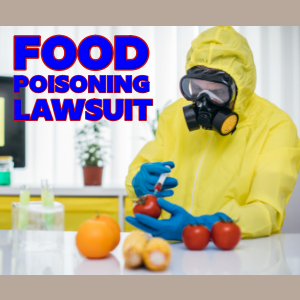Food Poisoning Lawsuit | Compensation Claim
Common sources of food poisoning

When is a food service company responsible for food poisoning?
You can file a foodborne illness claim if a food service company provides food with bacteria or other pathogens. In food poisoning cases, a plaintiff will have to prove the following things:
- The product was contaminated or defective when it left the defendant’s control.
- The defendant distributed or sold a contaminated or defective product.
- The plaintiff used or consumed the product in a foreseeable manner.
- The plaintiff suffers harm as a result of the defect.
Types of injuries associated with food poisoning
The Centers for Disease Control and Prevention (CDC) is the federal agency accountable for fighting diseases nationwide. People develop abdominal pain, cramps diarrhea, fever, and nausea.
However, serious cases can require hospitalization, medication, and a longer recovery period.
Pregnant women, infants, children, the elderly, and people with weak immune systems are more susceptible to experiencing severe symptoms.
Can I sue a grocery store to sell expired food?
Selling expired food isn’t enough to file a personal injury lawsuit or food poisoning lawsuit against a grocery store. However, if the grocery store sold you expired food that caused you to get sick, the store will be liable for any injuries.
If you purchased expired food from the grocery store, you can return your purchase to the store for a refund. Nonetheless, if the store doesn’t offer a refund, you can file a Food Poisoning Lawsuit in small claims court.
Types of damages recovered in a food poisoning lawsuit
- Economic damages, such as lost wages, medical bills, and prescription medications.
- Non-economic damages, such as pain and suffering, emotional distress, loss of life enjoyment, physical impairment, disfiguration.
Do I need a lawyer to sue for food poisoning?
If you don’t have experience in filing a Food Poisoning Lawsuit, sometimes it becomes hard to claim maximum benefits. The skilled and experienced attorney helps the victim to discuss their case confidentially and get effective solutions.
If you want a lawyer who cares about you and the outcome of your food poisoning compensation, contact Ethen Ostroff. He and his networks ensure you get every dollar possible for what you went through.


